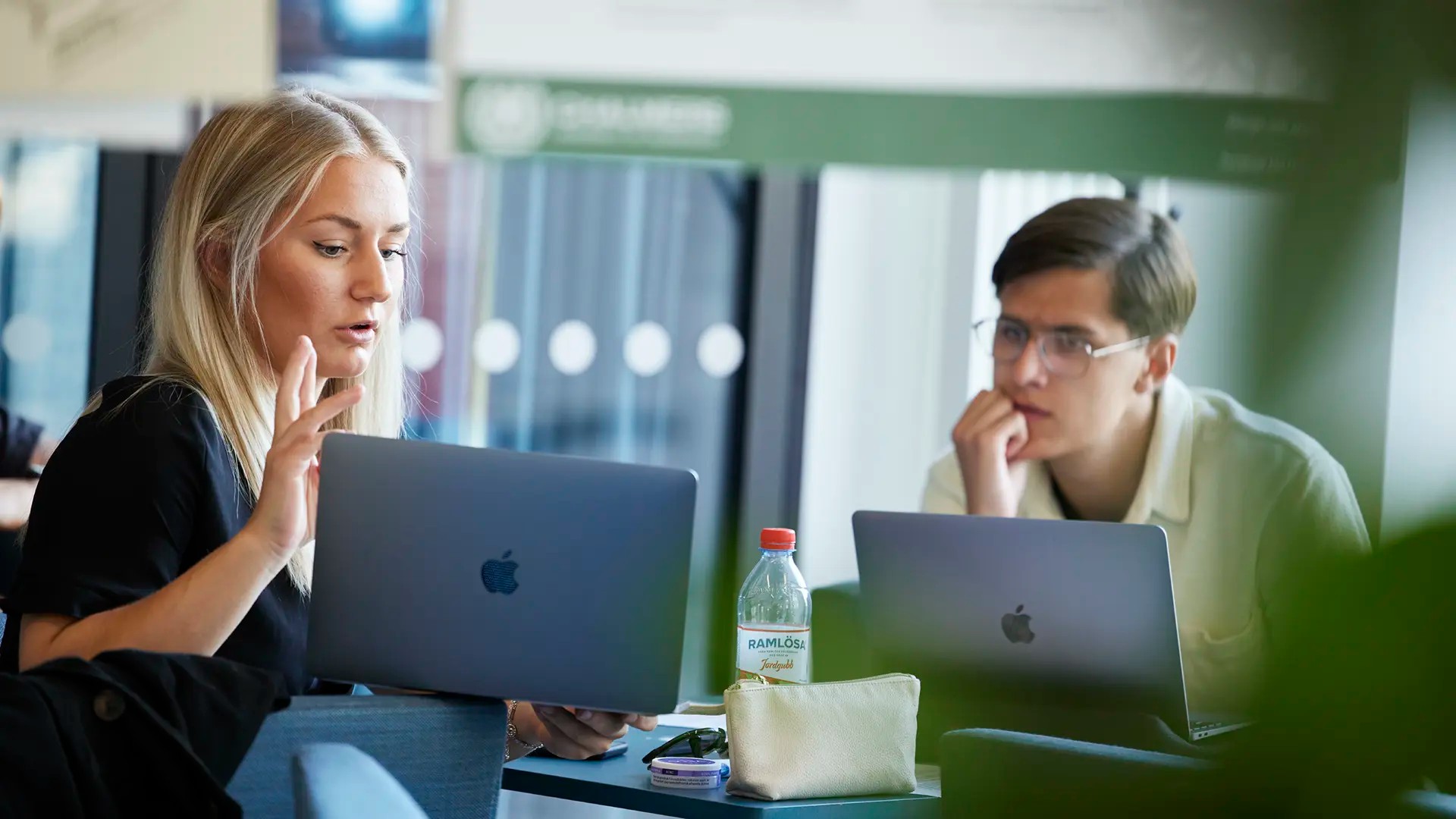
A mentor is a student who encourages and assists another student with planning and structuring their studies. Here you can read about what it means and register your interest in becoming a mentor for another student.
Become mentor for a student with disabilities
How do I become a mentor?
Complete the form and include a brief personal statement. We will then contact you to book a meeting.
Will I receive mentor training?
You will undergo a brief training course, plus four group supervision sessions with Chalmers’ study support coordinator.
Will I get paid?
As a mentor, you will be paid for your efforts. You will also receive payment for the supervision sessions and training.
How great is the workload?
Mentors and students normally meet for one or two hours a week.
Apply to become a mentor
How Mentor Support Works for Students with Disabilities
The Mentor's Role
The role of a mentor is to serve as support, encourage and assist the student, and help structure and plan their studies.
Chalmers aims to be an accessible university where a disability should not be a barrier to education. Individuals with disabilities should feel included and be treated equally, just like any other students. This means that everyone should be able to access information and participate in activities based on their capabilities. Students with disabilities can apply for a mentor through Nais.
Being a mentor involves meeting with the student and collaboratively creating tools and conditions for the student to independently carry out their studies.
The student may need help navigating the digital platforms associated with the university, such as the student portal, schedule, classrooms, and course plans. Typically, you meet once a week, but initially, it may be beneficial to meet twice a week.
Collaboration Between the Mentor and Student
Mentor support is based on the student's initiative and willingness. The student determines what the mentor needs to know for the collaboration to work best. Together, you agree on the framework for collaboration: how you contact each other and where you meet.
If the student unreasonably misses two mentor visits, the coordinator terminates mentor support.
All students should be able to participate in activities based on their capabilities!
Structure and Timeframes
The mentor and student together find appropriate strategies for:
- Study techniques
- Structure, organization, and planning of studies
- Timetables and weekly planning
- Prioritizing tasks
- Navigating Chalmers' digital platforms
The mentor does not provide support with:
- Acting as a supervisor or teacher
- Writing content or proofreading
- Serving as a contact person or therapist
Timeframes
- Mentor support is provided for one academic year at a time. If the student or mentor wishes to end the assignment prematurely, contact the coordinators.
- The mentor and student have one hour of contact per week. Up to two hours can be recommended at the beginning of the collaboration.
- It is essential for both the mentor and the student to respect and adhere to agreed-upon times.
- Inform each other if the meeting is canceled; the mentor reports to educational support if this happens more than three times.
Come prepared for each meeting!
Responsibility
Student's responsibility
The student should come well-prepared for mentor meetings and bring the necessary materials for planning and organizing studies: course plan, schedule, literature, and a calendar. If the collaboration is not working, contact the coordinators.
Mentor's responsibility
The mentor participates in the education and training provided by the coordinators. The mentor arranges the meeting place after coordinating with the student.
The mentor should come prepared for the meeting. The mentor is responsible for not disclosing conversations with the student. If the mentor needs to consult with someone, contact the coordinators.
Mentor's Compensation and Training
- The mentor receives compensation according to the current fee.
- The mentor is offered training and guidance.
- The mentor receives a work certificate specifying the tasks if desired.
Follow-up
The coordinators conduct follow-ups as time permits, so it is crucial for the student and mentor to reach out if something is not working or if mentor support ends prematurely. If the student wishes to continue with mentor support after an academic year, speak with your mentor to see if it works for them as well. Then, the student contacts educational support to extend the support and arranges for a new mentor if needed.
Do you need a mentor?
Submit an application at www.nais.uhr.se or email pedagogisktstod@chalmers.se if you already have a decision in Nais. A prerequisite for offering mentor support is that the coordinator has an available/accessible mentor.
Do you want a mentor assignment?
Contact pedagogisktstod@chalmers.se